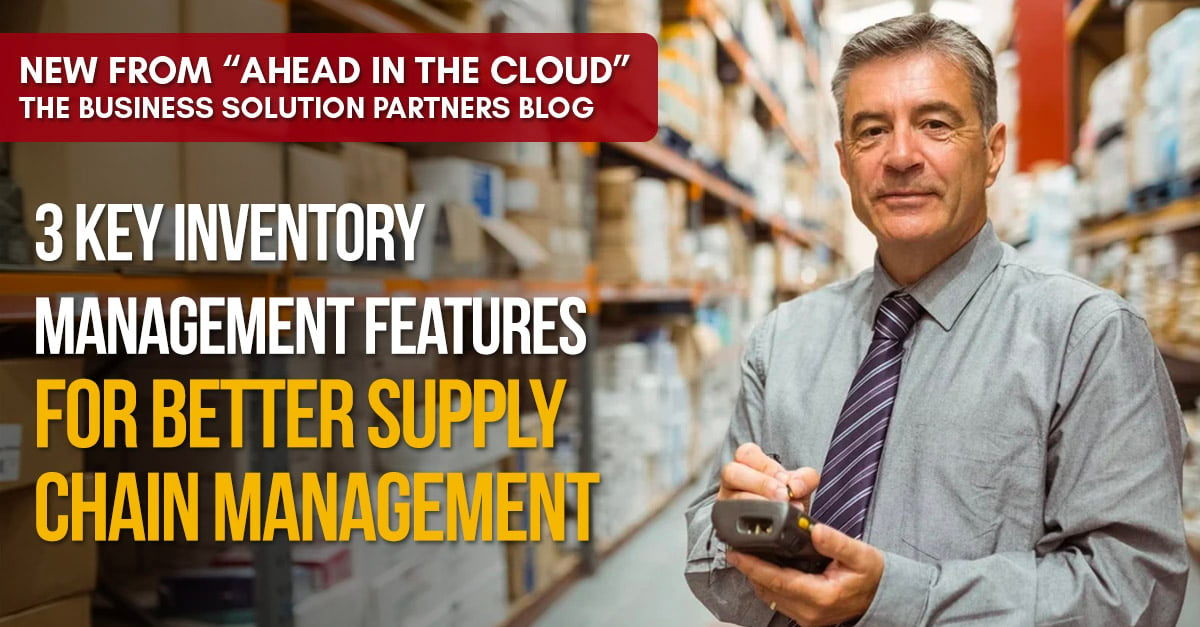3 Keys To Eliminating Common Warehouse Inventory Management Inefficiencies
Distributors need to be vigilant in identifying inventory management inefficiencies in the warehouse to avoid unnecessary costs and to increase...
2 min read
FullQuota Editor : Updated on September 17, 2020
Technology solutions can help distributors to better manage their inventory, which in turn improves order fulfillment and increases customer satisfaction.
Barcoding and radio-frequency identification (RFID) technology support inventory management by making the picking process more efficient. Inventory should be organized with barcoded storage locations and item numbers, which can be especially helpful for distributors with multiple warehouse locations. Systems that provide availability information across all locations allow distributors to fulfill orders more quickly.
RFID has become more popular in the past few years, but barcoding remains the preferred tracking method. There are barcoding applications that interface with NetSuite software and allow users to more efficiently process information and input data. Users can scan an item number and location, and the system automatically inputs the information, as opposed to manual data entry. These apps fit into the overall ERP system and provide more accurate data input and faster information processing.
Distributors can also implement fulfillment metrics, which can help them to better manage their operations. Here are three metrics to consider:
These are just a few examples out of the many metrics distributors can implement; distributors need to determine their own priorities and develop metrics to track them. Building metrics into an ERP system provides greater visibility into the data, which aids in decision-making. Cloud ERP systems can help track and analyze these metrics.
Telltale signs within your existing system will show whether it’s time to upgrade to a cloud ERP solution to improve order fulfillment. Systems that use different software for different processes, for instance, are very limiting. The front- and back-end systems should not run separately, as an article on the NetSuite website explains. For example, accurate sales data should be used to support inventory management. If your system can’t support that kind of data-sharing, you should consider a cloud ERP upgrade.
Another sign your system is due for an upgrade is if it’s difficult to access information about the business. It should be quick and easy to pull data about average sales margins and other key performance indicators. Businesses need access to data to get a full picture of operations and make decisions based on the best information available. If information is stuck in silos and stored in spreadsheets, it means your system could benefit from an upgrade to aid order fulfillment.
Also, all financial data should be in a single database. If accounting is a long and difficult process, your system is holding your business back. Accounting staff should not need to reconcile financial information on different systems. A cloud ERP solution combines all financial data into a single system, which helps to improve efficiency.
The NetSuite website outlines three additional key benefits of upgrading to a cloud ERP solution.
Staying up to date on technology is vital to surviving in today’s distribution industry. Cloud-based ERP systems that support effective inventory management make it easier to handle order fulfillment and better meet customers’ needs.
Distributors need to be vigilant in identifying inventory management inefficiencies in the warehouse to avoid unnecessary costs and to increase...
Technology solutions can help distributors to tailor their e-commerce inventory management systems to fit the demands of the 21st century.

Cloud-based inventory management solutions provide a high level of visibility that enables distributors to get the most out of their supply chains.